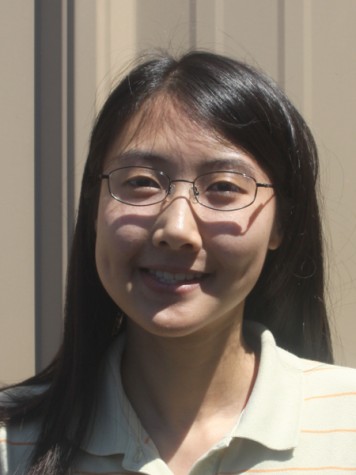Glendale Community College students who are interested in joining a campus group can begin their research now. During Club Rush, students can join existing organizations or start one on their own.
“I think [clubs] bring unity and camaraderie,” said Scott Melesky, president of the Early Childhood Educators Club. “When people are all in a club, it brings energy as well. And once you have all of that, you can have something powerful and fun.”
In order to start a successful campus organization, students must follow certain guidelines by laying a good foundation that is solid enough to last until following semester. It involves advertising, marketing, recruiting students, budget planning and administrative work.
After finding at least five students who are interested in joining the club and selecting an advisor employed at GCC, students decide with their advisor how they want the club to function.
Tzoler Oukayan, the student activities coordinator at GCC and advisor to the Inter-Organizational Council, said that the paperwork is not very difficult.
“The more time consuming part is planning the club constitution.”
Oukayan said, “I think it’s really (about) getting involved on campus. When I was a student here, my first year I was just a body. I came to class; I went to work. I didn’t really get the college experience. (In the club,) you see the college in a different way. You make new friends, develop skills (. and) discover interests you didn’t know you had.”
“We want Glendale to be more than a transfer institution,” Oukayan said. “Some people do technical training and then there is the traditional student who transfers. We hope that all of them get involved on the campus a little bit more.”
She explained that “it makes a difference” when students get involved in campus events or “anything that engages you in student activity . even if it’s just watching and observing.”
Oukayan stressed the benefits of starting a club. “I think it’s the leadership experience. You are becoming the founder of something, and that can be significant on our campus. And the skills and the leadership abilities that you put into creating the club are very developmental. (For instance,) I think it’s a great experience to have to write a constitution. It’s like being a founding father.”
Melesky said he was inspired to start the ECE club after attending Club Rush. “There were 64 clubs and there was nothing for early childhood educators. We have great teachers and great resources. The students can be represented and learn more about childhood education and more about the Child Development Center. Also the club gives them a place where they can talk about the field and hear speakers.”
The club’s purpose is “to work closely with the Child Development Center in organizing meetings and seminars to support those working in the field.”
Melesky said, “The last ECE Club existed in 1998 but had been dormant for more than 10 years. With the 2010 to 2011 ECE Club that I founded, I wanted to continue their energy and enthusiasm that they had toward early childhood education. I wanted to give the current ECE students a place where they can continue to grow and develop as educators.”
Paulina León, vice president of the Environmental Club, said she learned about the club from the GCC website and “immediately sent the president a message to see if [she] could join.”
“I wanted to do something active,” she said. “My high school didn’t have any campus clubs. People are more active here, and I wanted to do something more meaningful.”
León is currently a biological science major, but would like to major in environmental science. “I thought it would be really helpful to be in a club where you get to see and discuss about the current environmental issues.”
She said the goal of the club is to form a conscience on environmental and humanitarian issues, as well as taking actions in school and out in the community.
Additionally, enthusiasm is needed for the club to become successful. León said, “Running a club requires some time and dedication as well as passion for what you’re doing. With that and with the help of the other members, your club will run just fine.”
For extra financial support, clubs can hold their own fundraisers on campus. They can also apply for different grants in which ASGCC will help with finances or provide supplies for the event.
“They help us a lot,” León said. “They provide us with everything we need, from tables, booths, audio equipment and more. And sometimes they even help us advertise our events.”
Special Organizational Support allows a one-time grant for up to $250 to clubs registered with the Inter-Organizational Council.
Organizational Event Support helps clubs with events they want to have such as speakers and field trips. The grant can be applied twice per semester for up to $250.
Both Melesky and León encourage students to join campus clubs. “Being part of a student organization helps you meet a great number of interesting people with different points of view and objectives in life,” León said. “It develops a bigger sense of responsibility and communicational skills that are very important in life. Plus, you get to help the community and the environment while having fun.”
Melesky said, “I think it goes for any club. When people are interested in something that interests them or want to know more about it, I think that’s good.”
Students who are interested in learning more about starting a club or about other clubs on campus can visit http://glendale.edu/as/iocclub.html.
For more information about the Early Childhood Educators Club, visit http://vision.glendale.edu/index.aspx?page=4696.
To learn more about the Environmental Club, go to GCC Environmental Club on Facebook.

